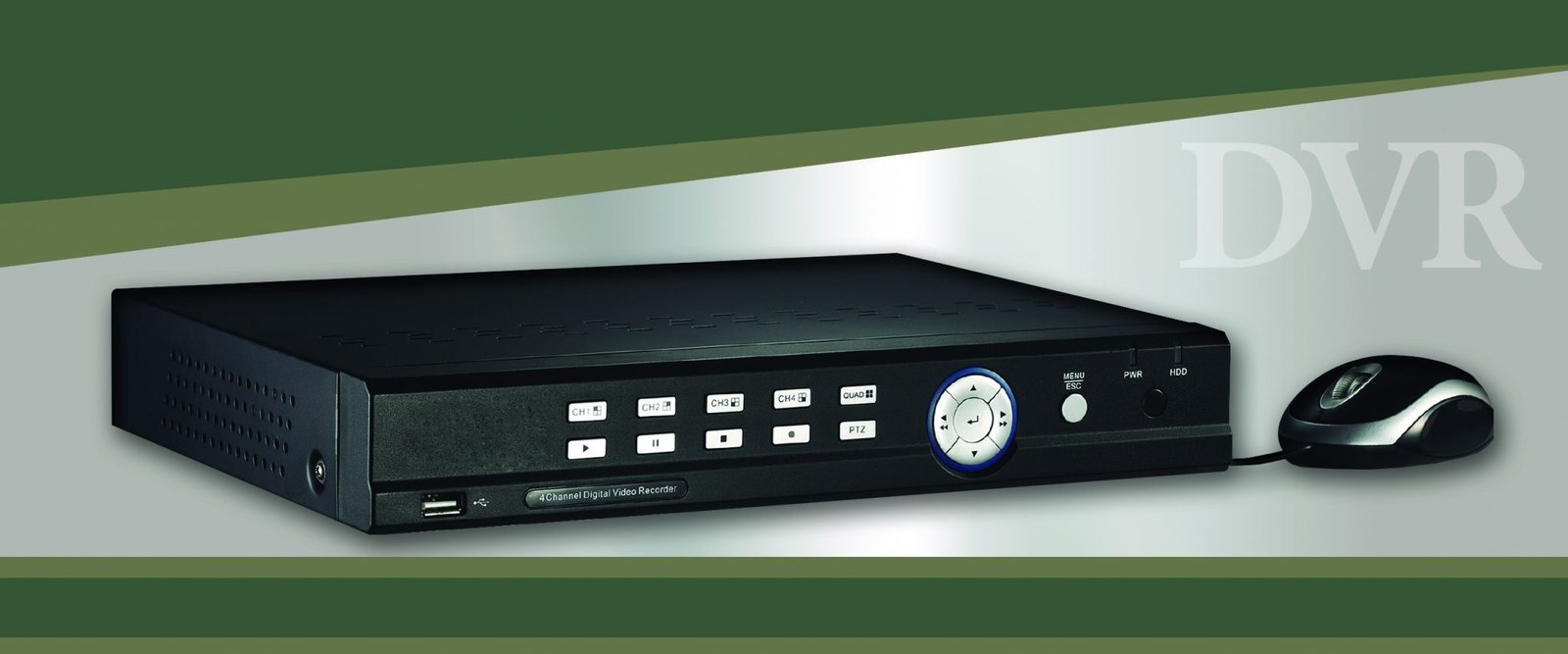A DVR security system is a kind of surveillance camera system with digital security cameras that records motion video digitally hence the word Digital Video Recorder came from. It is an economical surveillance solution but with a high-quality recording and allows monitoring from various location or computer.
With the help of a DVR card stored within the system; signals from the digital security cameras are being captured and stored in the hard drive digitally. This allows the system to run for several months without much maintenance. The quantity of documentation is determined not only by the hard drive capacity. But it is also determined by the number of cameras and the frames per second.

Retrieval of data in the traditional method needs a lot of scanning. There is a lot of footage to search through in order to find a specific event. In DVR security system on the other hand; retrieval of data can be achieved in an instant. That is because videos are labeled or stamped to specify the time and date. Making DVR security cameras more preferable to users.
Compared to traditional video security system, DVR security system provides high-quality digital image recording, playback, archive, and processing. Additionally, Digital Video Recording can be customized to meet individual preferences and needs, making it more user-friendly. Often, DVR security cameras are set with additional features such as auto-start recording and with night vision. Sensitivity scale of digital recorders, enable users to set the system to document based on a specific level of motion.
Another advantage of DVR security systems is the ability of its security video camera to be controlled remotely with the use of the DVR device. It also allows the users to zoom the image, pan or even rotates to have a better access of the field.
A DVR security system is a set of closed circuit video cameras connected to a DVR device or a PC capable of digital video recording. The number of video surveillance cameras to be installed depends on the range and dimension of the area to be monitored as well as the layout. Often, a single camera can monitor in a range of 1000 square feet or 93m². Upgrading from VCR to DVR is quite simple; you only need to plug-in the existing CCTV camera system to the new DVR security system and let the recording begin.
When the hard drive reaches its capacity limit; the DVR sends an alert via beeping, unless the system is set to overwrite previous footage. In some DVR security system; built-in option of audio is made available through some requires additional audio kit record audio sounds.
Some digital video recording security systems have the ability to detect motion and stamping events, therefore, removing much of the management and monitoring from the personnel involved in monitoring events, making them more efficient and well organized.
Continued development of DVR security systems have progressed significantly in recent years. Because of this, it is quite possible that in the future, the system will be the most simple and user-friendly on the market.

Advantages and Disadvantages of the DVR:
The DVR seems to be an old fashioned technology compared with the NVR, however it still gains its own advantages and keeps a large portion of dedicated users in market.
Pros of the DVR:
Price is usually an important factor in decisions on camera systems. If the budget is your primary concern, go for a DVR security system and it can save you a large sum of money.
The biggest advantage of a DVR security system is that it works on its own. The DVR system can give you constant video feeds without breaks to keep your property in absolute security.
Cameras do not need to be programmed or set up when connected to the DVR. It is a simple plug and play solution. Although there may be annoying cables, you do not need to mess with camera settings or configuration.
Cons of the DVR:
You will have to drill at least a hole to let the wires run back to the DVR and each camera will need a separate wire which may be hard to organize. And the mounting position is kind of fixed for the wire restriction.
Even though the emerging technology has greatly improved the recording quality of analog cameras (the highest resolution is 4K so far), it still can not catch up with the NVR.
The cameras could be placed no more than 1000 feet away from the DVR for the decaying signal over the cable.
DVR vs. NVR, Which One to Choose?
Having gained some background knowledge about the two different video recorders, we will further explore the advantages and disadvantages of NVR and DVR. This post covers the main points that you must know before making the final decision.
The table below reveals the pros and cons of DVR and NVR in several aspects that are essential to evaluate the cameras’ performance and can greatly affect your experiences.
A Comparison Chart Between NVR and DVR
| Comparison | NVR | DVR |
| Cameras type | IP cameras | Analog security cameras |
| Recording quality | Higher | Lower |
| Signal | Unstable | Stable |
| Installation | Easier with wiring | Tougher with wiring |
| Configuration | Manual/automatic configuration | Plug and play |
| Cost | Higher | Lower |
A table may not answer all your questions, you may read on for more detailed analysis and information.




